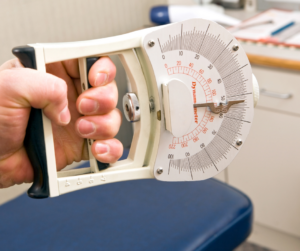Assessing Aging: Tests for Seniors to Track Well-Being
 Aging is a process that is unavoidable, and as we age, maintaining health and well-being becomes a priority. This is particularly true for seniors. As such, routine evaluations can be quite helpful in determining how well they are aging and providing them with tips and tricks for improving their health. Fortunately, there is a wide range of tests that can shed light on many facets of mental, emotional, and physical well-being. We’ll look at a few of these tests in this post and how seniors and home care can work together to make changes as necessary.
Aging is a process that is unavoidable, and as we age, maintaining health and well-being becomes a priority. This is particularly true for seniors. As such, routine evaluations can be quite helpful in determining how well they are aging and providing them with tips and tricks for improving their health. Fortunately, there is a wide range of tests that can shed light on many facets of mental, emotional, and physical well-being. We’ll look at a few of these tests in this post and how seniors and home care can work together to make changes as necessary.
Evaluations of Physical Fitness
For evaluations regarding physical fitness, it can be good for home care to document a base point for seniors so that they can see how they progress after incorporating any needed changes.
- Walk Test with Timing: This test evaluates walking speed and mobility, two critical indices of general physical function. Home care can time seniors while they walk a set distance—say, six minutes—and track their progress over time.
- Grip Strength Test: The ability to hold one’s hands tightly is a good measure of general muscular function and strength. A portable dynamometer can be used to evaluate grip strength, and decreases in grip strength may be a sign of fragility and muscle loss.
- Balance Tests: Measures of balance and stability, such as the Berg Balance Scale or the Romberg test, are important in preventing falls, which are a major issue for seniors.
Evaluations of Cognition Levels
Whether seniors are concerned about their cognitive condition or not, knowing where they stand is good information to have.
- The MMSE, or Mini-Mental State Examination: This popular exam evaluates a range of cognitive abilities, such as language, attention, memory, and visuospatial skills. It can assist in determining dementia or cognitive deterioration.
- Clock Drawing Test: In this test, seniors must sketch a clock face that indicates a particular hour. It evaluates executive function and visuospatial skills and may reveal signs of cognitive decline.
- Trail Making Test: This assessment gauges executive function, attention span, and processing speed by having seniors link numeral circles in a specific order, switching between letters and numbers.
Emotional Health Evaluations
Good mental health is important at any age, but especially in the older generation, where changes can pop up around every corner. If loved ones and home care see signs of depression in seniors, it’s essential to talk with a professional about an assessment.
- Geriatric Depression Scale (GDS): Depression is prevalent in older adults, although it is frequently misdiagnosed. An assessment tool for depression symptoms in older individuals is the GDS questionnaire.
- Anxiety Assessments: The Geriatric Anxiety Inventory (GAI) and other tools can assist seniors in assessing their degree of anxiety, which can have an effect on their general well-being and quality of life.
Maintaining a proactive approach to health and well-being is crucial in the older years. Seniors gain the information they need to evaluate their physical, cognitive, and emotional well-being through a variety of tests. Once they have the results, they can take advantage of the support they get from home care and loved ones to make educated decisions about their lifestyles and healthcare requirements.
If you or an aging loved one are considering hiring Home Care in Culver City, CA, please contact the caring staff at Home Care Help. Serving All of Los Angeles County. Call us today at (888) 989-7388
- Senior Scams: Make Sure Your Mom Or Dad Isn’t A Victim - July 23, 2024
- What is Companion Care for Seniors? - July 8, 2024
- Around-the-Clock Care Allows Seniors Live At Home - June 20, 2024
